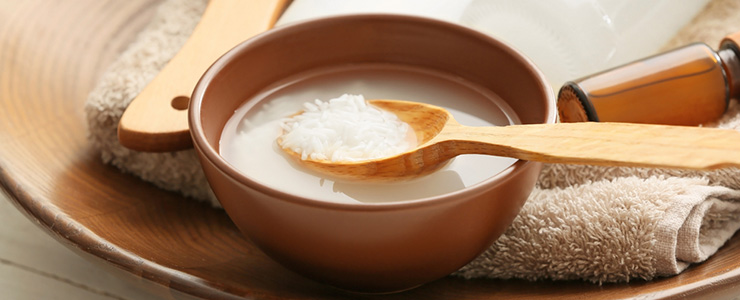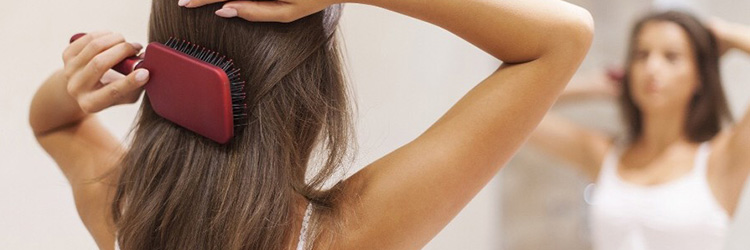Tips For Hair Care During Monsoons







Here’s a look at these monsoon hair care tips in detail so, you get through the season without any hair damage.
While you might want to get wet in the drizzle, remember that rainwater is acidic and can damage your hair. It might sound basic but, keeping your hair dry at all times is a must. Buy good-quality waterproof headgear that protects your hair from the rain and does not induce hair fall, which is quite likely as your hair turns brittle when wet. Next, make the good old oil therapy, your best friend, in the monsoon. A hot oil hair massage twice a week should nourish your scalp and stimulate hair growth. And those times when you oil your hair, use a mild, diluted shampoo to wash it. This process will help reduce the brittleness and frizziness caused by humidity during monsoons. Use a conditioner too but, make sure you apply it just to the ends and shaft of your hair and not the scalp or roots. If you’re thinking of getting any chemical treatments, it’s a big NO-NO during monsoons. Permanent hair straightening or smoothening, the colouring of hair, or even getting your hair curled, all of it should take a backseat during this time. Firstly, it damages your hair extensively, and secondly, if you happen to get wet in the rains immediately after getting the treatment done, it’s your money that will go down the drain. So, avoid any treatments or styling on your hair in the rains, at all cost. The humidity during monsoons can cause you to sweat without you realising it because it’s always so cold outside. So, tying up your hair is a bad idea as it can make your hair frizzy. In case you do feel the need to tie your hair, tie it in a loose ponytail or buns. Also remember, just the way your skin needs hydration, so does your hair. Drink plenty of water and keep both your skin and hair hydrated. In case you are plagued by an oily scalp, and the perpetual dampness in the air makes it even harder to retain the lustre and sheen of your hair, the only solution is to take extra care of your mane to get rid of the excessive oil. Here go some pointers that’ll help you in your quest this wet season:
Use a shampoo with sodium lauryl sulphates:

Treat your hair to astringents:

Opt for dry shampoo:

Hair masks containing aloe vera:

Apart from these treatments, opting for a healthy diet deems essential to reduce your skin’s propensity for oiliness. The less your skin’s sebaceous glands produce oil, the less oiliness you experience in your hair. Keep these hair care tips in mind and sail through the monsoon with ease. We understand that it’s not every day that you get to enjoy the rains, but a little extra care can go a long way in keeping your beautiful tresses healthy and shiny. For more such hair care and skincare tips, you can browse through our articles right here: Skin Care Tips. You can even consult a dermatologist near you by visiting: Find A Dermatologist and get the correct guidance on any of your skin or hair issues. Just remember, following a proper monsoon hair care routine will help in the long run.














